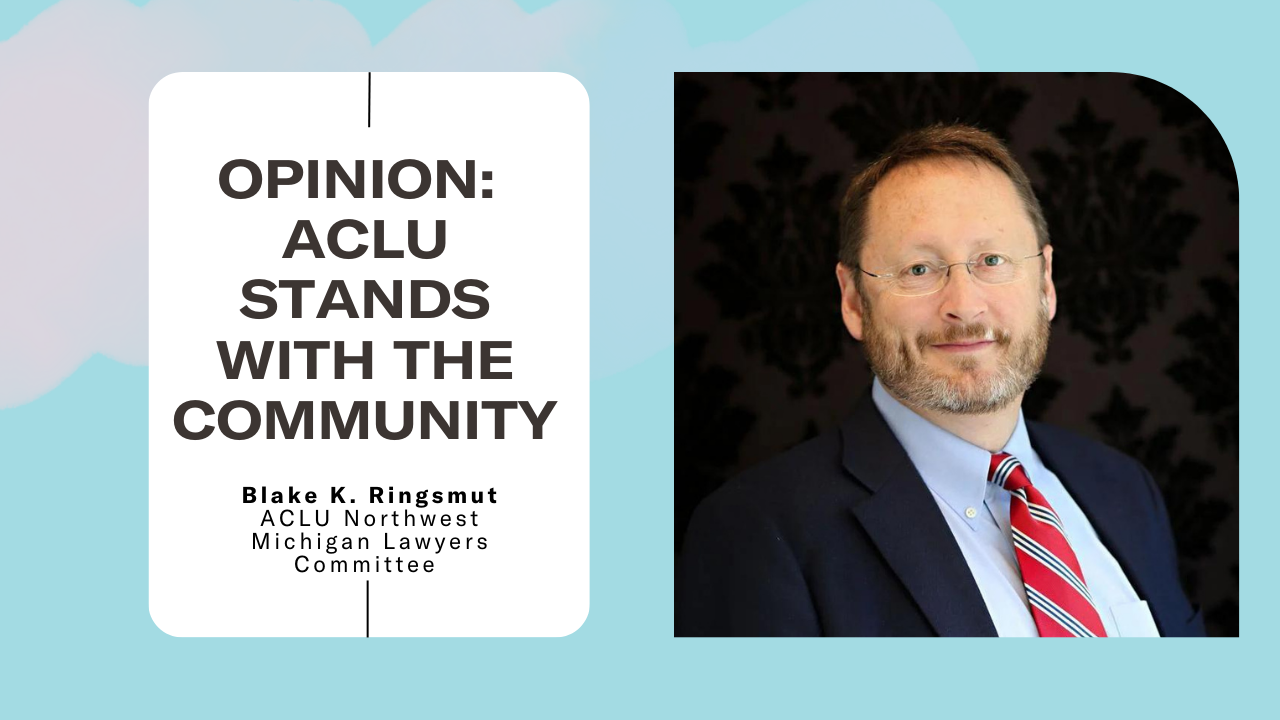The good news kept coming in recent weeks as the Michigan Supreme Court wrapped up its current term by issuing important, pro-civil liberties decisions in three cases involving the ACLU of Michigan.
Reflecting part of the wide range of issues the ACLU works on, the decisions came in cases involving the rights of LGBTQ+ parents and their children, the state’s obligation to pay attorneys’ fees when it violates the Freedom of Information Act, and the rights of people disabled in catastrophic auto accidents.
Protecting LGBTQ+ Parents and Their Children
In Pueblo v. Haas, the court ruled that LGBTQ+ parents who were unconstitutionally denied the right to marry can seek custody and parenting time of children that they had with their partners. As a result, Carrie Pueblo – and other LGBTQ+ people like her – will, when relationships with their same-sex partners break down, be able to maintain a parental role with children they helped raise.
The ruling was heartening. As Justice Megan Cavanagh wrote in the 5-2 opinion: “Justice does not depend on family composition; all who petition for recognition of their parental rights are entitled to equal treatment under the law. . . .
“The children of same-sex partners bear no lesser rights to the enjoyment and support of two parents than children born to married opposite-sex parents.”
The ACLU of Michigan led a coalition of organizations in filing a friend-of-the-court brief in the case, and also argued before the court. The brief was joined by Lambda Legal Defense and Educational Fund, Inc., the LGBTQA Law Section of the State Bar of Michigan, Affirmations LGBTQ+ Community Center, GLBTQ Legal Advocates and Defenders, the National Center for Lesbian Rights, Equality Michigan, the Out Center of Southwest Michigan, and Stand With Trans.
The court’s ruling represents an important step forward.
“Until now, when children were born into families headed by unmarried same-sex couples, a child-parent bond could be severed forever because the non-genetic parent was considered a ‘legal stranger’ to the child,” observed Jay Kaplan, staff attorney for the ACLU of Michigan’s Nancy Katz & Margo Dichtelmiller LGBTQ+ Rights Project. “That included people like Carrie Pueblo, who was unconstitutionally barred from marrying her partner. Children denied access to the love and financial support of one of their parents suffered terrible harm.
“Thankfully, because of today’s ruling, that will no longer happen. It is an important step forward in the ongoing effort by the ACLU and its allies to obtain equal rights for every LGBTQ+ person in Michigan.”
For more about the case, go here: https://www.aclumich.org/en/cases/lgbtq-parents-cut-their-children/
Funding Access to Justice
At issue in Woodman v. Michigan Department of Corrections was whether the state of Michigan could deny payment to opposing attorneys who, although not billing their clients, expect to receive the compensation prescribed by law when they win Freedom of Information Act (FOIA) lawsuits.
In 2017 the ACLU of Michigan and its cooperating attorneys from Honigman LLP filed suit on behalf of two freelance journalists after the Michigan Department of Corrections (MDOC) denied their requests to turn over video footage of an altercation at a prison that resulted in the death of an incarcerated person.
During the course of the lawsuit, the ACLU learned that the MDOC’s policy was to automatically deny all FOIA requests for videos without viewing the video in question to determine whether or how it would be exempt from disclosure under Michigan’s FOIA statute. In 2019, the Michigan Court of Claims ruled that MDOC’s policy was illegal and that the journalists had a right to see the videos they had requested, ordering the state to turn over the video footage.
Michigan’s FOIA statute entitles a prevailing party to recover attorneys’ fees from a government agency that unlawfully refused to turn over public records. However, the Court of Claims slashed the ACLU cooperating attorneys’ fees by 90% because the work was being done pro bono, meaning “for the public good” and at no charge to the clients. In fact, all ACLU cases are pro bono, as are nearly all legal services provided by other nonprofit public interest organizations that specialize in civil rights, civil liberties, and FOIA litigation.
In their appeal, the ACLU and its cooperating attorneys explained that federal and state courts throughout the country had long rejected the argument that attorneys’ fees could not be recovered by pro bono attorneys, and that Michigan would be an outlier if it allowed such a ruling to stand. Multiple organizations, including the State Bar of Michigan and the Association of Pro Bono Counsel, filed friend-of-the-court briefs in the Michigan Supreme Court, warning that such a ruling would undermine pro bono practice throughout the state and hamper the ability of public interest organizations to hold government agencies accountable and transparent. Fortunately, those arguments prevailed.
Writing for the Court, Justice Kyra Bolden recognized the significance of the issue for promoting government transparency and access to justice: “Awarding reasonable attorney fees under fee-shifting provisions, regardless of the type of representation, encourages enforcement of FOIA, encourages pro bono representation in cases that lawyers might not otherwise accept, and furthers access to justice for indigent parties that are seeking enforcement of their rights. . . . As recognized by other jurisdictions, a contrary ruling could have a chilling effect on the willingness of private attorneys to represent indigent litigants.”
To learn more about the case, go here: https://www.aclumich.org/en/news/keeping-government-accountable
Defending the Rights of Disabled People
Lastly, at issue in Andary v. USAA Casualty Insurance Company was whether changes in Michigan’s no-fault auto insurance law -- which impose strict new limitations on the care available to accident survivors -- can be applied to people who were injured before the new law took effect but still need care on an ongoing basis. The ACLU, joined by Disability Rights Michigan, Detroit Disability Power, Michigan Statewide Independent Living Council, Legal Services Association of Michigan, and the Michigan State Planning Body, submitted a friend-of-the-court brief urging the Supreme Court to find that the law is not retroactive.
The coalition’s brief specifically argued that the services and benefits provided by post-accident health care are essential to facilitating the equal citizenship of people with disabilities guaranteed by the Michigan Constitution, and as a result courts should not lightly infer that new legislation is intended to retroactively take those essential services and benefits away. Instead, courts should look for a “clear statement” that doing so was the Legislature’s intent, which was not present here.
The Court, in its ruling, agreed, with Justice Elizabeth Welch writing for the Court that accident survivors’ “vested contractual right to continuation of . . . benefits at pre-amendment levels cannot be stripped away or diminished when the Legislature has failed to clearly state its intent to do so.”
The Michigan Supreme Court made the correct legal decision, as well as a humane one, when it ruled that changes in Michigan’s no-fault auto insurance law cannot be applied retroactively to people suffering catastrophic injuries in car crashes that occurred prior to 2019.
Because of this ruling, it is our hope that thousands of Michiganders seriously injured in auto accidents, and receiving crucial care and resources through insurance coverage, won’t have their lives dangerously upended.
To read more about the case and the ACLU’s involvement, go here: https://www.aclumich.org/en/news/protecting-rights-people-who-suffered-c...
Dan Korobkin is legal director at the ACLU of Michigan.
Date
Thursday, August 3, 2023 - 8:15amFeatured image

